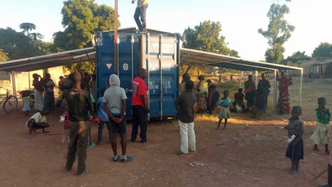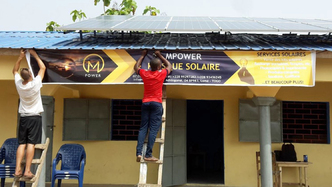

Swiss Partners
MPower Ventures AG, Zurich,
https://www.mpower.africa,
Manuel Seiffe, Michael Eschmann
Project Type:
Technology:
Country:
Project Status:
Project Start:
End of Project:
Contract:
Documentation
Swiss Contribution
MPower, is headquartered in Zurich, together with the South Pole Group, at the Technopark Zurich. The company develops software for its EnergyHub in-house and cooperates with a European supplier on the construction of a solar container. Finally, the Zurich University of Applied Sciences (ZHAW) contributes through its quality evaluation of different battery models.
Description
A large part of Zambia’s residents, and more generally, the population in sub-Saharan Africa, does not yet have access to the power network. MPower’s EnergyHub is a “ready-to-use” modular solar container, used as a recharging station for batteries which are then rented to households or small businesses. These batteries charged by solar energy, can then power lighting and charge mobile phones. The concept includes a financial package enabling customers to pay for energy services through fuel savings. MPower plans to launch its system, first in Zambia, and then extend it to neighboring countries through an innovative franchise model for power generation and related services.
Results
In June 2019, MPower installed a solar container in the village of Nsombo in Zambia. Thus, the local population benefits from the possibility of renting batteries (60 regular customers at the end of five months), as well as from services (such as hairdressing, welding, entertainment, refrigeration) requiring energy. A second system was commissioned in December 2019, in the village of Bodje in Togo. An application for the optimized management of EnergyHubs was also developed.
Impacts
Access to cheaper, cleaner energy improves the lives of communities. As a result, the EnergyHubs have become essential meeting points for villagers. The second system which was installed in Togo, has been significantly improved on the basis of the first experiences in Zambia. For example, the importation of a container has been abandoned in favour of outfitting an existing building instead. A subsidiary has been set up in Cameroon to multiply the concept in that country.